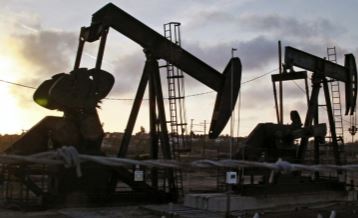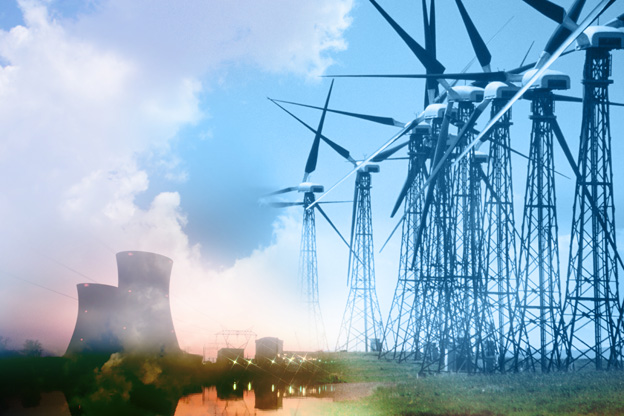Water Transport from Gas Fracking Makes West Virginia Roadways more Hazardous
Hydraulic fracturing (aka fracking) is a booming industry in West Virginia. Oil and gas exploration through this unconventional method has rapidly increased in recent years in the Mountain State. Energy-rich areas such as the Marcellus Shale formation are thought to contain vast natural gas reserves, prompting unprecedented amounts of out-of-state and foreign investments in the energy industry.
Late last year, China Energy Investment Corporation made a commitment to invest $83.7 billion in various energy projects over the next two decades in West Virginia. This was widely viewed as a big win for the Mountain State, with the potential to create tens of thousands of new jobs and provide a major boost to the local economy. While the new energy-related jobs are a welcome development, there are some downsides to this increased activity that many are overlooking.
The Fracking Process
West Virginia is one of 34 states that have active oil and natural gas wells. There are roughly 60,000 active wells in the Mountain State, and at this point, less than 3,000 of them are hydraulically fractured. When the anticipated foreign investment materializes, the number of fracked wells is expected to skyrocket.
The hydraulic fracturing process is far different from conventional methods of drilling for oil and natural gas. It starts by injecting a fluid into subterranean rock formations using high levels of pressure.
This fluid is made up of mostly water and sand, with up to 2% being composed of various chemical additives. The fluid produces a network of fractures inside the rock formations, allowing the natural gas and oil inside the rocks to be extracted. After the natural gas or oil is successfully extracted, the fluid is returned through the well and is either reused or disposed of.
Fracking is a highly water-intensive process. The water must be acquired, mixed with sand and chemical additives, trucked into the production site, injected into the well, then taken out of the well and reused or trucked to a disposal site. According to the New York Times, millions of gallons of water and between 500 and 1500 trucking trips are required for each well that is hydraulically fractured.
Water Transportation Issues in West Virginia
The China Energy investment could produce thousands of additional hydraulically fractured wells in West Virginia in the coming years. This will require billions of gallons of water and millions of trucking trips. This will put an enormous strain on the roadways in the Mountain State, leading to a traffic nightmare and a likely increase in trucking accidents.
West Virginia is a largely rural and mountainous state. Many of the roads are one lane each way, and they often lead through winding mountain terrain. It is difficult enough to travel through these parts of the state during the dry months, and when winter comes, the snow and ice make conditions far more dangerous.
To make matters worse, the trucks used by energy companies to transport water are often older and not as well-maintained as they should be. Auto defects and faulty truck maintenance lead to engine failures, tire blowouts, steering failures, faulty brakes and other types of hazardous breakdowns, causing major auto accidents that frequently involve multiple vehicles with numerous people being seriously injured.
Another issue that increases the likelihood of fracking-related trucking accidents is driver fatigue. Oil and gas workers are exempt from numerous federal safety standards, including highway safety rules that restrict the number of hours truckers are allowed to be on the road. This means truckers who transport fracking water are allowed to work longer hours than those in almost any other industry.
There is a good reason for the federal restrictions on trucking hours, and without them, there would be far more trucking accidents on America’s roadways. But because the oil and gas industry has a strong lobby, they have been able to secure an exemption that virtually no other industry has. Water transport drivers should be treated the same as other any other truck driver, and if highway safety standards are not applied to these drivers, they will be pressured to work longer hours, putting themselves and those they share the roadways with at greater risk.
What to Do If You are Involved in a Water Transport Trucking Accident
Being involved in an accident with a fracking water transport truck is one of the most traumatic experiences anyone can have. Collisions with trucks carrying heavy and hazardous materials can cause multiple catastrophic injuries and even fatalities. If this happens to you or a loved one, there are several things you should do right away:
- Report the Accident: Call 911 and the police to report the incident and fully cooperate with the authorities once they arrive. This will ensure that everything is handled properly and there is official documentation of the accident.
- Seek Medical Attention: If you or anyone else is hurt, call an ambulance immediately to so those injured can receive prompt medical assistance.
- Do Not Move your Vehicle: Unless you need to clear the road for safety reasons, keep your vehicle where it is. If there is any doubt about how the accident happened, experts can better reconstruct the incident if the vehicle is left in the same position it was in when the incident occurred.
- Retain Extensive Documentation: While the incident is fresh in your mind, write down as much as you can about what happened, and take multiple photos to help substantiate your version of events. You should utilize any camera you have available, including your mobile phone.
- Contact the West Virginia Public Service Commission (PSC) – The West Virginia PSC is responsible for registration for all motor carriers and hazardous material transports in West Virginia. They also conduct safety audits on newly-established motor carriers involved in interstate commerce and compliance reviews on interstate and intrastate motor carriers with lower than average safety ratings
- Retain Witness Contact Information: If there are witnesses, obtain their contact information so they can be reached later if their testimony is needed.
- Speak with an Experienced Attorney: Before speaking to any insurance adjusters and/or lawyers for the other parties involved, consult with a seasoned personal injury attorney so you understand your rights and options.
Construction and well sites are almost always multiemployer workplaces under the OSHA regulations and there are multiple parties responsible for safe working conditions and equipment. Therefore, you need an experienced lawyer to assess the responsibilities of all parties on those sites under federal and state workplace safety regulations.
Energy and trucking companies and their insurers have high-priced lawyers who will try to discredit your testimony and minimize their liability for any accident caused by one of their water transport trucks. A skilled commercial vehicle accident attorney who has experience dealing with the complexities of these types of cases can help ensure that your rights are protected and you obtain full compensation for your injuries.
If you or someone close to you has been injured or killed in a water transport trucking accident, contact our office today for a free no-obligation consultation.




